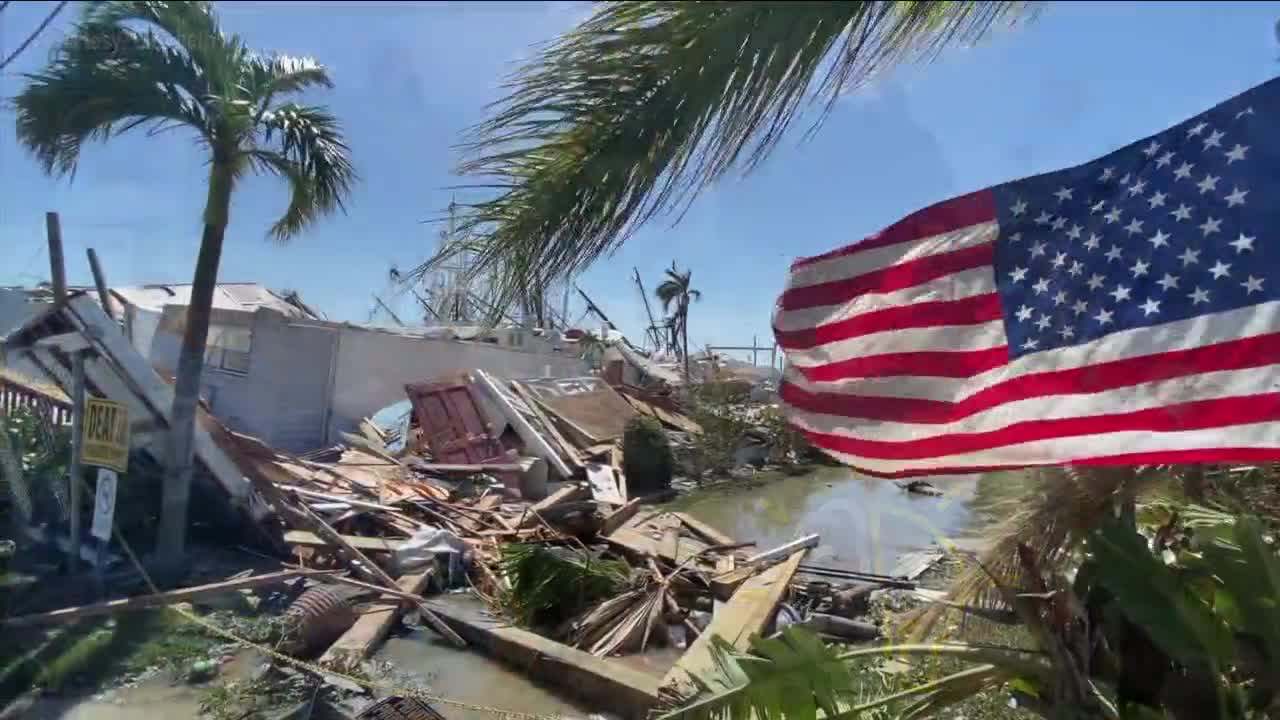HILLSBOROUGH COUNTY, Fla. — The University of South Florida plays a big role in helping our community get ready for hurricane season.
That includes making sure vulnerable groups, like refugees, are prepared.
“A lot of the women and their family units come here to the Tampa Bay area and go through the process of integration and are trying to build that sense of community. That's part of what we want to help the women accomplish. We want them to feel like they have a group of other women to kind of help support them through that integration,” said Elizabeth Dunn, instructor of emergency management at the USF College of Public Health.
Many of the groups of refugees who come here have never experienced a hurricane.
“They’re like, ‘Oh! This is what can happen here?'” said program coordinator Maria Paula Ibarcena-Woll.

That’s why the emergency management team in USF’s Department of Public Health holds disaster preparedness sessions every year with groups of refugee women.
“We try to start with education because a lot of women have never seen what a hurricane is or they have never encountered this kind of natural disaster,” said Ibarcena-Woll.
“We do a lengthy process where we teach them how to prepare their families and plan over the course of a few weeks,” said Dunn.
Students and staff teach them several things, like how to create hurricane kits, how to evacuate, when to evacuate, and the importance of heeding warnings from public officials if they’re in a flood zone.

“When we’re trying to explain to them what is in store for a potential threat, I think it’s very eye-opening when they start thinking about some of the challenges like not having access to 911, being stranded or trapped somewhere because there could be flooding around you even if you are not in a flood zone,” said Dunn.
They go over every aspect of hurricane season and what to expect to make sure these families are as prepared as possible.
“We also show them, hey, this is what the national broadcast system looks like, this is how it sounds, and this is what it means,” said Ibarcena-Woll.
“When we’re thinking about preparedness and what to expect, a lot of people don’t know where to even start when it comes to planning hurricane season. Making the decision that’s right for them and their family is unique. Each family is different. Each need, their needs are different,” said Dunn.
The students go out into the community to share resources.

They’ve even had groups visit the county’s Emergency Operations Center, where they have leaders some feedback on how to better overcome challenges, like language barriers when getting information out to the public during emergencies.
“A language barrier creates a really huge gap a lot of times when it comes to understanding. Especially when you don’t have the resources available,” said student Hannah Harburg.
Students said this work is crucial in saving lives, but not only do they get to help people get ready for a storm, they also learn a lot in return.
“We emphasize the sense of preparedness and the importance to be prepared according to the hazards and threats that are in our community,” said Ibarcena-Woll.
“It’s been one of the coolest experiences by far for my life personally,” said Harburg.






